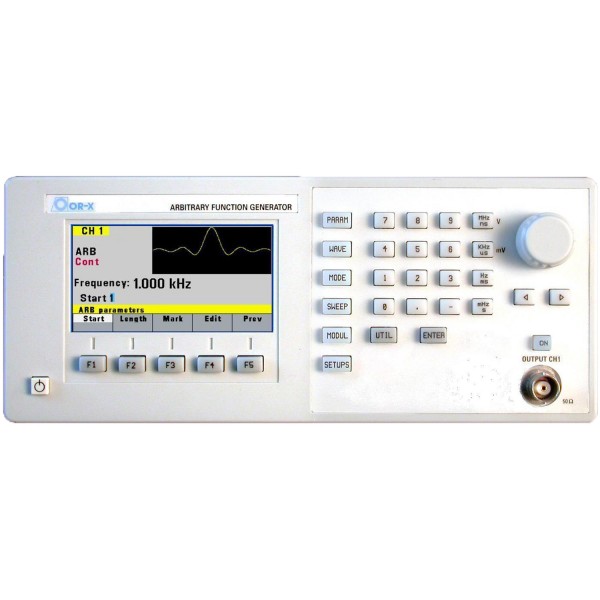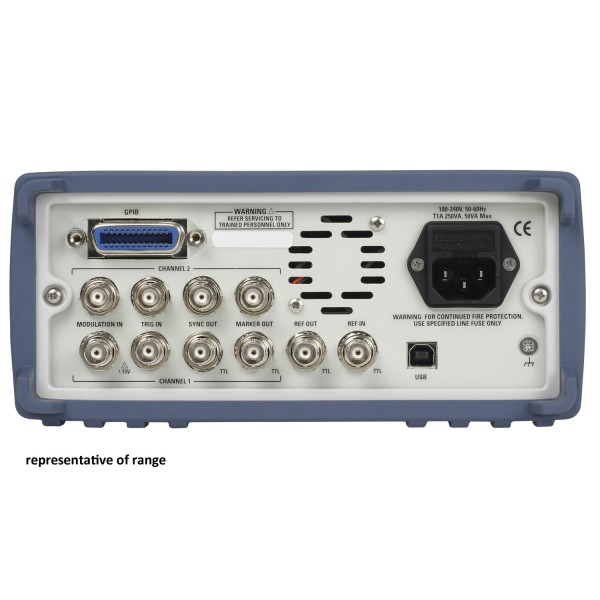Description
The ORX665 is a programmable Arbitrary Waveform Generator, generating user defined waveforms or Sine, Square, Pulse, Triangle, Ramp up, Ramp down , etc.
Features of the ORX665
- 50 MHz Sine and Square Waveforms
- 4M-point Arbitrary Waveforms
- 200 MHz Sampling Rate
- 14 bit Resolution
- USB TMC and GPIB
Capabilities of the ORX665
The ORX665 can generate standard DDS or Arbitrary waveforms with sampling rates of up to 200 MHz (5 ns), 14 bit vertical resolution and up to 4M points length. The sampling rate can also be controlled by an external clock.
All waveforms are internally generated with amplitudes up to 10Vp-p into 50Ω and 4 digits resolution. An offset generator allows generation of signals with large offsets. A full range of triggering capabilities is available including internal-external trigger source, gated and burst modes of operation. Each channel can be operated fully independently or channels can be linked, coupled and phased adjusted. Additional units can be parallel connected to produce multi channels waveforms.
Easy Operation
A menu-driven front panel operation with a graphic high resolution colour LCD makes the MODEL 665 easy to operate. Parameter changes and data entry can be made using the numerical keys or rotary knob.
Waveform editing can be done from scratch or by modifying standard waveforms. A PC software program, Wave-X Arbitrary Waveform Editor, allows you to easily create, edit and download complex waveforms.
Multiple waveforms can be stored in the instrument flash memory.
External Reference
A 10MHz external reference clock lets you synchronize the unit for precise phase adjustment.
Standard Waveforms
The wide choice of build-in standard waveforms gives instant access to frequently used test signals. The standard waveforms are: sine, triangle, square, ramps, pulses and DC. The waveforms can be swept over the full unit frequency range.
AM, FM and FSK modulation are available with programmable internal or external signals.
Programming
The instrument can be remotely controlled by the build-in USB TMC or the optional GPIB IEEE-488.2 interface. All parameters, modes and functions are programmable and SCPI compatible.


